Available Standards (3315)
Showing standards 2001 - 2200
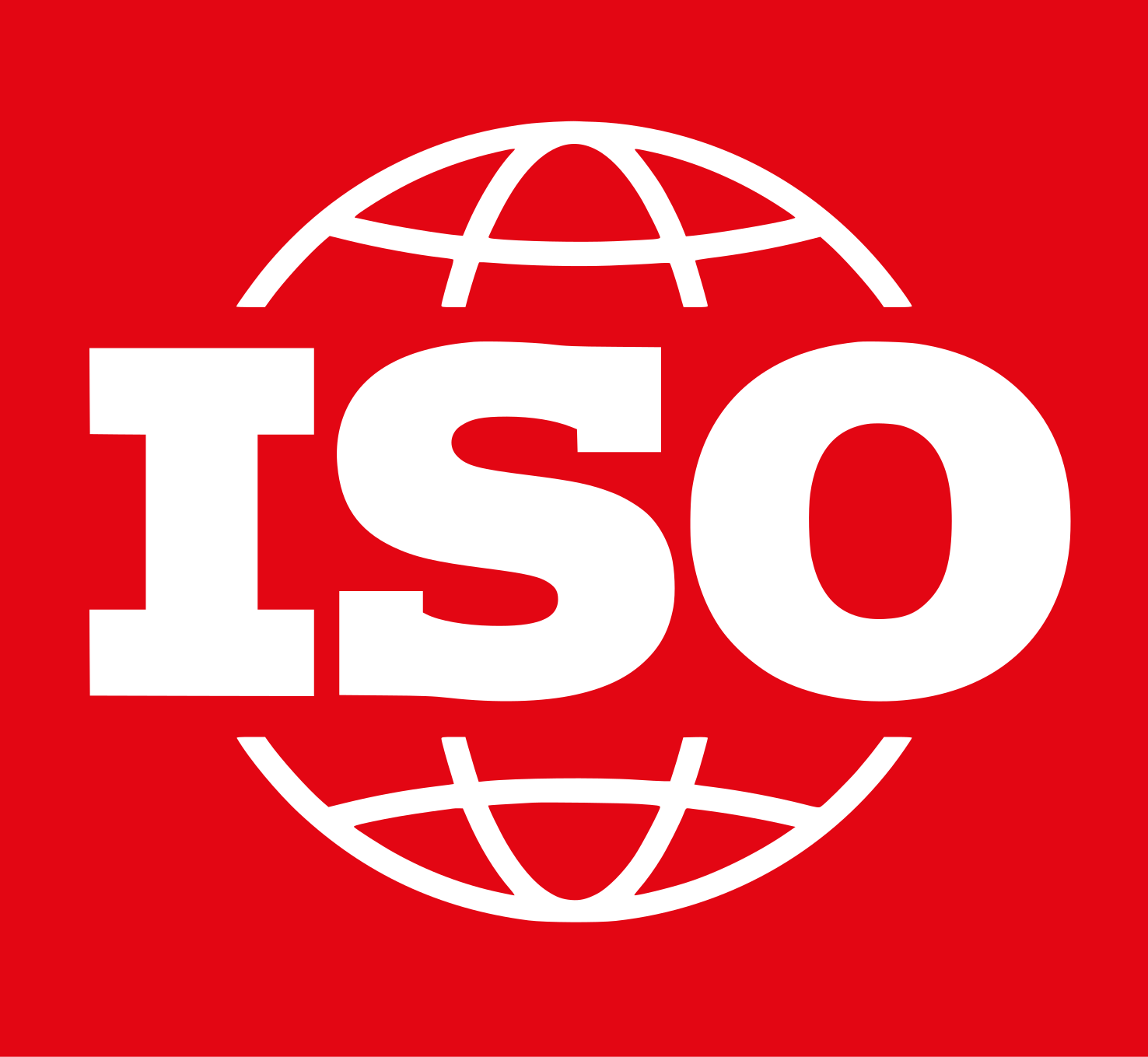
ISO/IEC 30146:2019 - Information technology - Smart city ICT indicators
This document defines a comprehensive set of evaluation indicators specially related to information and communication technologies (ICT) adoption and usage in smart cities.
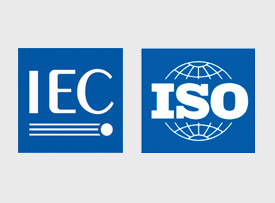
ISO/IEC 30147:2021Information technology -- Internet of things -- Methodology for trustworthiness of IoT system/service
This document provides system life cycle processes to implement and maintain trustworthiness in an IoT system or service by applying and supplementing ISO/IEC/IEEE 15288:2015.

ISO/IEC 30163:2021System requirements of IoT/SN technology-based integrated platform for chattel asset monitoring supporting financial services
ISO/IEC 30163:2021 specifies the system requirements of an Internet of Things (IoT)/Sensor Network (SN) technology-based platform for chattel asset monitoring supporting financial services, includi

ISO/IEC 30173 ED1Digital Twin - Concepts and terminology
This document establishes terminology for Digital Twin (DT) and describes concepts in the field of Digital Twin, including the terms and definitions of Digital Twin, concepts of Digital Twin (e.g.,

ISO/IEC 30182:2017, 2.10. Smart city concept model: Guidance for establishing a model for data interoperability
ISO/IEC 30182:2017 describes, and gives guidance on, a smart city concept model (SCCM) that can provide the basis of interoperability between component systems of a smart city, by aligning the onto

ISO/IEC 38505-1:2017Information technology -- Governance of IT -- Governance of data -- Part 1: Application of ISO/IEC 38500 to the governance of data
ISO/IEC 38505-1:2017 provides guiding principles for members of governing bodies of organizations on the effective, efficient, and acceptable use of data within their organizations by - applying t
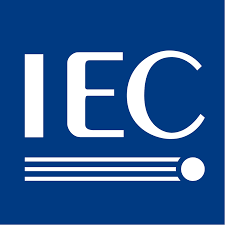
ISO/IEC 9797-3:2011 Message Authentication Codes (MACs) - Part 3: Mechanisms using a universal hash-function
This part of ISO/IEC 9797 specifies the following MAC algorithms that use a secret key and a universal hash-function with an n-bit result to calculate an m-bit MAC based on the block

ISO/IEC 9797-3:2011 Message Authentication Codes (MACs) - Part 3: Mechanisms using a universal hash-function
This part of ISO/IEC 9797 specifies the following MAC algorithms that use a secret key and a universal hash-function with an n-bit result to calculate an m-bit MAC based on the block

ISO/IEC AWI 5392Information technology -- Artificial intelligence -- Reference architecture of knowledge engineering
This document defines a reference architecture of Knowledge Engineering (KE) in Artificial Intelligence (AI).

ISO/IEC CD 23837-1.2
Information technology security techniques — Security requirements, test and evaluation methods for quantum key distribution — Part 1: Requirements

ISO/IEC CD 23837-2.2
Information technology security techniques — Security requirements, test and evaluation methods for quantum key distribution — Part 2: Evaluation and testing methods

ISO/IEC CD 30149 (2022)IoT Trustworthiness principles
This document provides principles for IoT trustworthiness based on ISO/IEC 30141 - IoT Reference Architecture.

ISO/IEC DIS 21838-3 Information technology - Top-level ontologies (TLO) - Part 3: Descriptive ontology for linguistic and cognitive engineering (DOLCE)
The Descriptive Ontology for Linguistic and Cognitive Engineering (DOLCE) is a top-level ontology (TLO) conforming to ISO/IEC 21838-1.

ISO/IEC DIS 21838-4 Information technology - Top-level ontologies (TLO) - Part 4: TUpper
PSL is being incorporated into the TUpper ontology as Part 4 of ISO 21838 (Top Level Ontologies).

ISO/IEC JTC 1/SC 27 11770-3:2015 - Key management - Part 3: Mechanisms using asymmetric techniques
This part of ISO/IEC 11770 defines key management mechanisms based on asymmetric cryptographic techniques.

ISO/IEC JTC 1/SC 27 11770-3:2015 - Key management - Part 3: Mechanisms using asymmetric techniques
This part of ISO/IEC 11770 defines key management mechanisms based on asymmetric cryptographic techniques.

ISO/IEC JTC 1/SC 27 9798-4:1999 Entity authentication - Part 4: Mechanisms using a cryptographic check function
This part of ISO/IEC 9798 specifies entity authentication mechanisms using a cryptographic check function.

ISO/IEC JTC 1/SC 27 9798-4:1999 Entity authentication - Part 4: Mechanisms using a cryptographic check function
This part of ISO/IEC 9798 specifies entity authentication mechanisms using a cryptographic check function.

ISO/IEC JTC 1/SC 27 10118-1:2016 - Hash-functions - Part 1: General
ISO/IEC 10118 specifies hash-functions and is therefore applicable to the provision of authentication, integrity and non-repudiation services. Hash-functions can be used for:

ISO/IEC JTC 1/SC 27 10118-1:2016 - Hash-functions - Part 1: General
ISO/IEC 10118 specifies hash-functions and is therefore applicable to the provision of authentication, integrity and non-repudiation services. Hash-functions can be used for:

ISO/IEC JTC 1/SC 27 10118-2:2010 - Hash-functions - Part 2: Hash-functions using an n-bit block cipher
This part of ISO/IEC 10118 specifies hash-functions which make use of an n-bit block cipher algorithm.

ISO/IEC JTC 1/SC 27 10118-2:2010 - Hash-functions - Part 2: Hash-functions using an n-bit block cipher
This part of ISO/IEC 10118 specifies hash-functions which make use of an n-bit block cipher algorithm.

ISO/IEC JTC 1/SC 27 10118-3:2018 Hash-functions - Part 3: Dedicated hash-functions
This document specifies dedicated hash-functions, i.e. specially designed hash-functions. The hash-functions in this document are based on the iterative use of a round-function.

ISO/IEC JTC 1/SC 27 10118-3:2018 Hash-functions - Part 3: Dedicated hash-functions
This document specifies dedicated hash-functions, i.e. specially designed hash-functions. The hash-functions in this document are based on the iterative use of a round-function.

ISO/IEC JTC 1/SC 27 11770-1:2010 - Key management - Part 1: Framework
In information technology there is an ever-increasing need to use cryptographic mechanisms for the protection of data against unauthorised disclosure or manipulation, for entity authentication, and

ISO/IEC JTC 1/SC 27 11770-1:2010 - Key management - Part 1: Framework
In information technology there is an ever-increasing need to use cryptographic mechanisms for the protection of data against unauthorised disclosure or manipulation, for entity authentication, and

ISO/IEC JTC 1/SC 27 11770-2:2018 - Key management - Part 2: Mechanisms using symmetric techniques
This document defines key establishment mechanisms using symmetric cryptographic techniques.

ISO/IEC JTC 1/SC 27 11770-2:2018 - Key management - Part 2: Mechanisms using symmetric techniques
This document defines key establishment mechanisms using symmetric cryptographic techniques.

ISO/IEC JTC 1/SC 27 11770-4:2017 - Key management - Part 4: Mechanisms based on weak secrets
This document defines key establishment mechanisms based on weak secrets, i.e.

ISO/IEC JTC 1/SC 27 11770-4:2017 - Key management - Part 4: Mechanisms based on weak secrets
This document defines key establishment mechanisms based on weak secrets, i.e.

ISO/IEC JTC 1/SC 27 11770-5:2011 - Key management - Part 5: Group key management
This part of ISO/IEC 11770 specifies key establishment mechanisms for multiple entities to provide procedures for handling cryptographic keying material used in symmetric or asymmetric cryptographi

ISO/IEC JTC 1/SC 27 11770-5:2011 - Key management - Part 5: Group key management
This part of ISO/IEC 11770 specifies key establishment mechanisms for multiple entities to provide procedures for handling cryptographic keying material used in symmetric or asymmetric cryptographi

ISO/IEC JTC 1/SC 27 11770-6:2016 - Key management - Part 6: Key derivation
This document specifies key derivation functions, i.e. functions which take secret information and other (public) parameters as input and output one or more “derived” secret keys.

ISO/IEC JTC 1/SC 27 11770-6:2016 - Key management - Part 6: Key derivation
This document specifies key derivation functions, i.e. functions which take secret information and other (public) parameters as input and output one or more “derived” secret keys.

ISO/IEC JTC 1/SC 27 13888-1:2009 - Non-repudiation - Part 1: General
The goal of a non-repudiation service is to generate, collect, maintain, make available and verify evidence concerning a claimed event or action in order to resolve disputes about the occurrence

ISO/IEC JTC 1/SC 27 13888-1:2009 - Non-repudiation - Part 1: General
The goal of a non-repudiation service is to generate, collect, maintain, make available and verify evidence concerning a claimed event or action in order to resolve disputes about the occurrence

ISO/IEC JTC 1/SC 27 27002:2013 - Code of practice for information security controls
This International Standard gives guidelines for organizational information security standards and information security management practic

ISO/IEC JTC 1/SC 27 27002:2013 - Code of practice for information security controls
This International Standard gives guidelines for organizational information security standards and information security management practic

ISO/IEC JTC 1/SC 27 27037:2012 Guidelines for identification, collection, acquisition and preservation of digital evidence
This International Standard provides guidelines for specific activities in handling digital evidence, which are identification,

ISO/IEC JTC 1/SC 27 27037:2012 Guidelines for identification, collection, acquisition and preservation of digital evidence
This International Standard provides guidelines for specific activities in handling digital evidence, which are identification,

ISO/IEC JTC 1/SC 27 27042:2015 - Guidelines for the analysis and interpretation of digital evidence
This International Standard provides guidance on the conduct of the analysis and interpretation of potential digital evidence in order to identify and evaluate digital evidence which can be used to

ISO/IEC JTC 1/SC 27 27042:2015 - Guidelines for the analysis and interpretation of digital evidence
This International Standard provides guidance on the conduct of the analysis and interpretation of potential digital evidence in order to identify and evaluate digital evidence which can be used to

ISO/IEC JTC 1/SC 27 27043:2015 - Incident investigation principles and processes
This International Standard provides guidelines based on idealized models for common incident investigation processes across va

ISO/IEC JTC 1/SC 27 27043:2015 - Incident investigation principles and processes
This International Standard provides guidelines based on idealized models for common incident investigation processes across va

ISO/IEC JTC 1/SC 27 9798-1:2010 Entity authentication - Part 1: General
This part of ISO/IEC 9798 specifies an authentication model and general requirements and constraints for entity authentication mechanisms which use security techniques.

ISO/IEC JTC 1/SC 27 9798-1:2010 Entity authentication - Part 1: General
This part of ISO/IEC 9798 specifies an authentication model and general requirements and constraints for entity authentication mechanisms which use security techniques.

ISO/IEC JTC 1/SC 27 9798-2:2008 Entity authentication - Part 2: Mechanisms using symmetric encipherment algorithms
This part of ISO/IEC 9798 specifies entity authentication mechanisms using symmetric encipherment algorithms.

ISO/IEC JTC 1/SC 27 9798-2:2008 Entity authentication - Part 2: Mechanisms using symmetric encipherment algorithms
This part of ISO/IEC 9798 specifies entity authentication mechanisms using symmetric encipherment algorithms.

ISO/IEC JTC 1/SC 27 10116:2017 - Modes of operation for an n-bit block cipher
This document establishes five modes of operation for applications of an n-bit block cipher (e.g. protection of data during transmission or in storage).

ISO/IEC JTC 1/SC 27 10116:2017 - Modes of operation for an n-bit block cipher
This document establishes five modes of operation for applications of an n-bit block cipher (e.g. protection of data during transmission or in storage).

ISO/IEC JTC 1/SC 27 27038:2014 - Specification for digital redaction
Some documents can contain information that must not be disclosed to some communities.

ISO/IEC JTC 1/SC 27 27038:2014 - Specification for digital redaction
Some documents can contain information that must not be disclosed to some communities.

ISO/IEC JTC 1/SC 27 27041:2015 - Guidance on assuring suitability and adequacy of incident investigative method
This International Standard provides guidance on mechanisms for ensuring that methods and processes used in the investigation o

ISO/IEC JTC 1/SC 27 27041:2015 - Guidance on assuring suitability and adequacy of incident investigative method
This International Standard provides guidance on mechanisms for ensuring that methods and processes used in the investigation o

ISO/IEC JTC 1/SC 27 9797-2:2011 Message Authentication Codes (MACs) - Part 2: Mechanisms using a dedicated hash-function
This part of ISO/IEC 9797 specifies three MAC algorithms that use a secret key and a hash-function (or its round-function) with an n-bit result to calculate an m-bit MAC.

ISO/IEC JTC 1/SC 27 9797-2:2011 Message Authentication Codes (MACs) - Part 2: Mechanisms using a dedicated hash-function
This part of ISO/IEC 9797 specifies three MAC algorithms that use a secret key and a hash-function (or its round-function) with an n-bit result to calculate an m-bit MAC.

ISO/IEC JTC 1/SC 27 9798-5:2009 - Entity authentication - Part 5: Mechanisms using zero-knowledge techniques
This part of ISO/IEC 9798 specifies entity authentication mechanisms using zero-knowledge techniques:

ISO/IEC JTC 1/SC 27 9798-5:2009 - Entity authentication - Part 5: Mechanisms using zero-knowledge techniques
This part of ISO/IEC 9798 specifies entity authentication mechanisms using zero-knowledge techniques:

ISO/IEC JTC 1/SC 27 9798-6:2010 - Entity authentication - Part 6: Mechanisms using manual data transfer
This part of ISO/IEC 9798 specifies eight entity authentication mechanisms based on manual data transfer between authenticating devices.

ISO/IEC JTC 1/SC 27 9798-6:2010 - Entity authentication - Part 6: Mechanisms using manual data transfer
This part of ISO/IEC 9798 specifies eight entity authentication mechanisms based on manual data transfer between authenticating devices.

ISO/IEC JTC 1/SC 27 Information security, cybersecurity and privacy protection
The development of standards for the protection of information and ICT. This includes generic methods, techniques and guidelines to address both security and privacy aspects, such as:

ISO/IEC JTC 1/SC 27 Information security, cybersecurity and privacy protection
The development of standards for the protection of information and ICT. This includes generic methods, techniques and guidelines to address both security and privacy aspects, such as:
ISO/IEC JTC 1/SC 42 - Artificial Intelligence
Standardization in the area of Artificial Intelligence

ISO/IEC JTC 1/SC27 9798-3:2019 Entity authentication Part 3: Mechanisms using digital signature techniques
This document specifies entity authentication mechanisms using digital signatures based on asymmetric techniques. A digital signature is used to verify the identity of an entity.

ISO/IEC JTC 1/SC27 9798-3:2019 Entity authentication Part 3: Mechanisms using digital signature techniques
This document specifies entity authentication mechanisms using digital signatures based on asymmetric techniques. A digital signature is used to verify the identity of an entity.

ISO/IEC JTC 1/WG11 DIS 30146 - Smart city ICT indicators
This document defines a comprehensive set of evaluation indicators specially related to information and communication technologies (ICT) adoption and usage in smart cities.

ISO/IEC JTC 1/WG11 DIS 30146 - Smart city ICT indicators
This document defines a comprehensive set of evaluation indicators specially related to information and communication technologies (ICT) adoption and usage in smart cities.

ISO/IEC JTC1-SC41-257 ED1Internet of Things (IoT) - Device model for IoT device interoperability
This document defines a structured description method, which describes the functionalities of IoT devices, including what functionalities an IoT device can provide, and how to use the functionaliti

ISO/IEC JTC1-SC41-262 ED1Internet of Things (IoT) - Functional architecture for resource ID interoperability
This document specifies functional requirements and architecture about the following items for resource interoperability among heterogeneous IoT platforms (e.g., oneM2M, GS1 Oliot, IBM Watson IoT,

ISO/IEC PWI JTC1-SC41-5Digital Twin - Reference Architecture
This document provides an overview of Digital Twin, describes the capabilities, range, characteristics and requirements, and establishes a well-defined conceptual model, reference model and referen

ISO/IEC PWI JTC1-SC41-6 Guidance for IoT and Digital Twin use cases
The document defines a conceptual model for the building of use cases; specifies a use case template ontology, i.e.

ISO/IEC PWI JTC1-SC41-7Digital Twin - Maturity model
This document provides a standardized generic Digital Twin maturity model, definition of assessment indicators, guidance for a maturity assessment, and other practical classifications of Digital Tw

ISO/IEC PWI JTC1-SC41-8Internet of Things (IoT) - Behavioral and policy interoperability
Based on ISO/IEC 21823-1, this document provides the basic concepts for IoT systems and digital twin systems behavioral and policy interoperability.

ISO/IEC TR 22417:2017Information technology - Internet of things (IoT) - IoT use cases
ISO/IEC TR 22417:2017(E) This technical report identifies IoT scenarios and use cases based on real-world applications and requirements.

ISO/IEC TR 27550:2019Information technology -- Security techniques -- Privacy engineering for system life cycle processes
This document provides privacy engineering guidelines that are intended to help organizations integrate recent advances in privacy engineering into system life cycle processes.

ISO/IEC TR 30148:2019Internet of things (IoT) - Application of sensor network for wireless gas meters
ISO/IEC TR 30148:2019 describes
- the structure of wireless gas meter networks, and
- the application protocol of wireless gas meter networks.

ISO/IEC TR 30164:2020 -Internet of things (IoT) - Edge computing
ISO/IEC TR 30164:2020 describes the common concepts, terminologies, characteristics, use cases and technologies (including data management, coordination, processing, network functionality, heteroge

ISO/IEC TR 30164:2020 Internet of Things (IoT) - Edge computing
The document describes the common concepts, terminologies, characteristics, use cases and technologies (including data management, coordination, processing, network functionality, heterogeneous com

ISO/IEC TR 30164:2020Internet of Things (IoT) - Edge computing
ISO/IEC TR 30164:2020 describes the common concepts, terminologies, characteristics, use cases and technologies (including data management, coordination, processing, network functionality, heteroge

ISO/IEC TR 30172 ED1Digital Twin - Use cases
This document provides a collection of representative use cases of Digital Twin applications in a variety of domains.

ISO/IEC TS 27110:2021Information technology, cybersecurity and privacy protection -- Cybersecurity framework development guidelines
This document specifies guidelines for developing a cybersecurity framework. It is applicable to cybersecurity framework creators regardless of their organizations' type, size or nature.

ISO/IEC TS 27570:2021Privacy protection -- Privacy guidelines for smart cities
The document takes a multiple agency as well as a citizen-centric viewpoint.
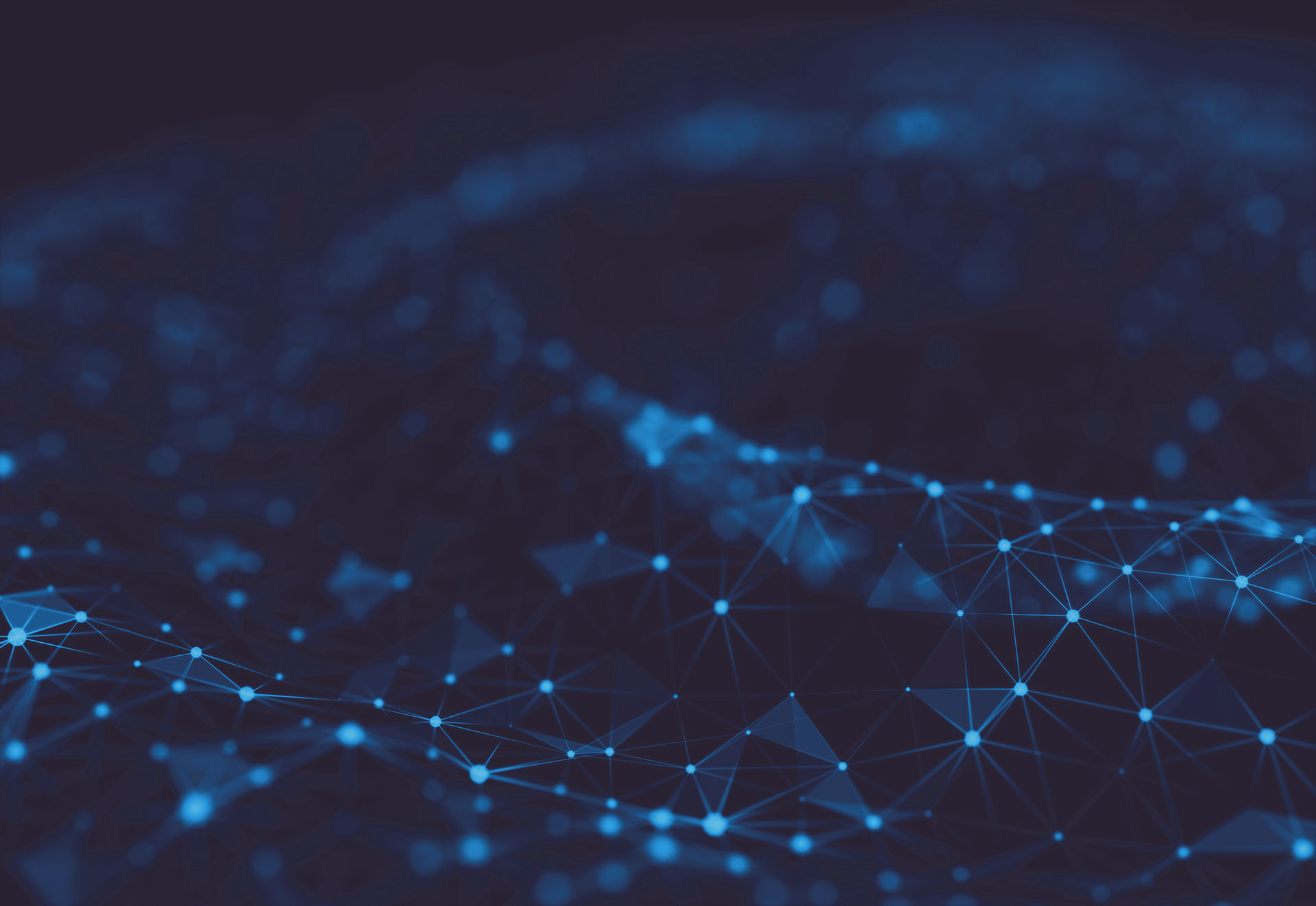
ISO/IEC/IEEE DIS 24641Systems and Software engineering -- Methods and tools for model-based systems and software engineering
This International Standard, within the context of methods and tools for MBSSE: (1) Provides terms and definitions related to MBSSE; (2) Defines MBSSE-specific processes for model-based systems and

ISO/PAS 19450:2015Automation systems and integration - Object-Process Methodology
ISO/PAS 19450:2015 specifies Object-Process Methodology (OPM) with detail sufficient for enabling practitioners to utilise the concepts, semantics, and syntax of Object-Process Methodology as a mod

ISO/TR 14292:2012, 2.11.Health informatics: Personal health records - Definition, scope and contexts
This Technical Report also considers the wider context of engagement of individuals in the management of their own health and healthcare, since this engagement is the primary driver for present-day

ISO/TR 17427-9:2015, 2.5. Intelligent transport systems: Cooperative ITS - Part 9: Compliance and enforcement aspects
ISO/TR 17427-9:2015, 2.5.Intelligent transport systems::Cooperative ITS::Part 9: Compliance and enforcement aspects

ISO/TR 18307:2001, 3.51. Health informatics: Interoperability and compatibility in messaging and communication standards - Key characteristics
ISO/TR 18307:2001, 3.51. Health informatics::Interoperability and compatibility in messaging and communication standards::Key characteristics

ISO/TR 19669:2017, 3.11. Health informatics: Re-usable component strategy for use case development
ISO/TR 19669:2017 specifies a use case development methodology, facilitated by a dynamic catalogue of re-usable components.

ISO/TS 14265:2011, 2.9. Health Informatics - Classification of purposes for processing personal health information
ISO/TS 14265:2011, 2.9.Health Informatics - Classification of purposes for processing personal health information

ISO/TS 17975:2015, 3.1. Health informatics: Principles and data requirements for consent in the collection, use or disclosure of personal health information
ISO/TS 17975:2015, 3.1. Health informatics::Principles and data requirements for consent in the Collection, Use or Disclosure of personal health information

ISO/TS 19150-1:2012 Geographic information - Ontology - Part 1: Framework
ISO/TS 19150-1:2012 defines the framework for semantic interoperability of geographic information.

ISO/TS 21089:2018 Health informatics -Trusted end-to-end information flows
ISO/TS 21089:2018 describes trusted end-to-end flow for health information and health data/record management.

ISO/TS 23258:2021 Blockchain and distributed ledger technologies Taxonomy and Ontology
This document specifies a taxonomy and an ontology for blockchain and distributed ledger technologies (DLT).

ISO/TS 23258:2021 Blockchain and distributed ledger technologies - Taxonomy and Ontology
This document specifies a taxonomy and an ontology for blockchain and distributed ledger technologies (DLT).

IT Security and Privacy - A framework for identity management - Part 1: Terminology and concepts
This document defines terms for identity management, and specifies core concepts of identity and identity management and their relationships.
IT Security and Privacy — A framework for identity management — Part 1: Terminology and concepts
This document defines terms for identity management, and specifies core concepts of identity and identity management and their relationships.

IT Security and Privacy — A framework for identity management — Part 2: Reference architecture and requirements
ISO/IEC 24760-2:2015
provides guidelines for the implementation of systems for the management of identity information, and

IT Security and Privacy — A framework for identity management — Part 4: Authenticators, Credentials and Authentication
This international standard provides guidance on implementing user authentication and the use of credentials therein, in particular it: -- describes complementary models for implementing authentica

IT Service Management and IT Governance
Scope
Standardization of IT Service Management and IT Governance.

IT Service Management and IT Governance
Scope
Standardization of IT Service Management and IT Governance.
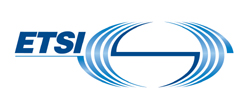
ITS Working Group 1: Application Requirements and Services
Working Group 1 shall develop ETSI deliverables on the application requirements and services. In particular this includes:

ITS Working Group 2: Architecture and Cross
Working Group 2 shall develop the overall architecture and address cross (OSI) layer issues. In particular this includes:

ITS Working Group 3: Transport and Network
Working Group 3 shall develop ETSI deliverables for the data transport and network protocol layers and management of these layers.
In particular this includes:

ITS Working Group 4: Media and Medium
Working Group 4 shall encompass ITS standardization on OSI model layers 1 and 2 including the management of these layers. WG 4 may have subgroups for each of the core subject areas.

ITS Working Group 5: Security
Working Group 5 shall be responsible for:
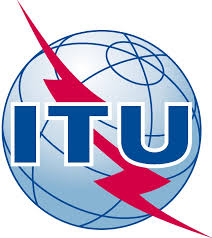
ITU - T - [2017-2020] : [SG17] : [Q8/17] X.sgtBD - Security guidelines of lifecycle management for telecom big data
This Recommendation is security guidelines of lifecycle management for telecom Big Data. This recommendation covers as follows:
- Introduction the use cases in telecom Big Data;

ITU -T - [2017-2020] : [SG17] : [Q8/17] - X.GSBDaaS - Guidelines on security of Big Data as a Service
Big data based on cloud computing provides the capabilities to collect, store, analyze, visualize and handle varieties of large volume datasets, which cannot be rapidly transferred and analyzed usi

ITU T Y.QKDN_frint "Framework for integration of QKDN and secure network infrastructures" - DRAFT
ITU T Y.QKDN_frint "Framework for integration of QKDN and secure network infrastructures"

ITU-H.644.4 (06/21)Architecture for mobile/multi-access edge computing enabled content delivery networks
Recommendation ITU-T H.644.4 specifies a functional architecture for mobile/multi-access edge computing (MEC) enabled content delivery network (MEC-CDN).

ITU-T - SG16 FG-AI4H - Focus Group on “Artificial Intelligence for Health”
The ITU-T Focus Group on Artificial Intelligence for Health (AI4H) was established by ITU-T Study Group 16 at its meeting in Ljubljana, Slovenia, 9-20 July 2018.

ITU-T - SG11 - Q.5001Signalling requirements and architecture of intelligent edge computing
A huge volume of data has been generated from the various smart things. Lots of smart services have been working based on cloud systems.

ITU-T - SG11 - Q.5003Signalling requirements and architecture for federated multiaccess edge computing
Recommendation ITU-T Q.5003 describes signalling requirements and architecture for federated multiaccess edge computing (MEC).

ITU-T - SG11 - Q.IEC-PROProtocols for microservices based intelligent edge computing
For development of the IEC architecture, there are couple of software-oriented architectural ways to build flexible protocol architecture achieved by deploying and operating the architecture, for i

ITU-T - SG13 - Y. FMSC-MECMulti-access Edge Computing for fixed, mobile and satellite convergence in IMT-2020 networks and beyond
This draft Recommendation aims to describe the framework of Multi-access Edge Computing for fixed? mobile and satellite convergence (FMSC) in IMT-2020 networks and beyond.

ITU-T - SG13 - Y.3076Architecture of ICN-enabled Edge Network in IMT-2020
This Recommendation specifies the requirements and architecture about ICN-enabled edge network in IMT-2020.

ITU-T - SG13 - Y.3526Cloud computing - Functional requirements of edge cloud management
This Recommendation provides requirements for edge cloud.

ITU-T - SG13 - Y.ec-reqtsOverview and requirements of edge computing
This Recommendation provides overview and requirements of edge computing.

ITU-T - SG13 - Y.ecloud-reqtsCloud computing - Functional requirements of edge cloud
This Recommendation provides functional requirements of edge cloud. Edge cloud is a cloud computing deployed to the edge of the network. It has small capacity resources enabling cloud service.

ITU-T - SG13 - Y.FMC -AAEC-reqUse cases and Technical requirements for supporting application addressing in edge computing for future networks including IMT-2020 network
This draft Recommendation presents the use cases and technical requirements of application addressing in edge computing for future networks including IMT-2020.

ITU-T - SG13 - Y.FMC-AAECApplication addressing in edge computing in IMT-2020 network and beyond
On the basis of Y.FMC-AAEC-req, which specifies use cases and requirement of application addressing in edge computing, this draft Recommendation presents the framework and technical solutions of ap

ITU-T - SG13 - Y.FMC-ECUnified edge computing for supporting fixed mobile convergence in IMT-2020 networks
A unified and cloud-based edge computing platform allows operators to flexibly deploy network functions and support infrastructure for fixed-mobile network convergence, to provide a unified multi-a

ITU-T - SG13 - Y.IMT2020-CEFECFramework of capability exposure function in edge computing for IMT-2020 networks and beyond
This draft Recommendation specifies the framework of capability exposure function (CEF) in edge computing for IMT-2020 networks and beyond.

ITU-T - SG13 - Y.LSMECLocal shunting for multi-access edge computing in IMT- 2020 networks
The draft Recommendation describes the requirements, architecture, functional entities, reference points and information flows of local shunting for multi-access edge computing in IMT-2020 networks

ITU-T - SG16 - F.743.13Requirements for cooperation of multiple edge gateways
This Recommendation describes the requirements for a function which enables the cooperation of multiple edge gateways (CMEG) to complete complex tasks.

ITU-T - SG16 - F.CECRequirements and reference framework of cloud-edge collaboration in industrial machine vision systems
With the development of industry, cloud computing and edge computing are widely used.

ITU-T - SG16 - F.DC-CGS-TRECTechnical requirements of cloud gaming system for 5G mobile edge computing
Cloud gaming requires high real-time performance, so it needs special hardwares to match the needs of real-time game rendering.

ITU-T - SG16 - F.DVMSFEdge - Distributed vehicular multimedia services framework for V2X based edge computing
Recommendation ITU-T F.749.3 describes the use-cases and requirements for vehicular multimedia networks (VMN), taking into account the autonomous levels defined by [SAE J3016], and defined the Vehi

ITU-T - SG16 - H.VSECArchArchitecture for edge computing platform supporting a video surveillance system
Architecture for edge computing platform supporting a video surveillance system

ITU-T - SG17 - X.5Gsec-ecsSecurity framework for 5G edge computing services
This draft Recommendation analyses the potential deployment scheme and typical application scenarios of edge computing services, specifies the security threats and requirements specific to the edge

ITU-T - SG17 - X.5Gsec-netecSecurity capabilities of network layer for 5G edge computing
5G EC would play a key role on low latency services and traffic off-load services in 5G era.

ITU-T - SG17 - X.gecdsGuideline on edge computing data security
Edge computing is strongly related to 5G and UPF is the data connection point between the MEC system and 5G Network architecture.

ITU-T - SG17 - X.itssec-5Security guidelines for vehicular edge computing
This draft Recommendation provides security guidelines for vehicular edge computing.